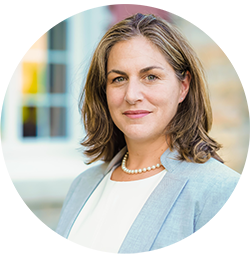NB Pilot Communities, News Release
New Brunswick’s Smart Energy Community Accelerator Communities Enter a New Phase
Helping Canadian Communities Shape Their Smart Energy Futures
SECA program aids New Brunswick communities in discussing and actioning community energy plans and has the potential to spread across the country
Pour diffusion immédiate
Nov. 15, 2021 — Community action is essential to ensure that Canada meets its climate goals. That’s why QUEST is proud to announce a new milestone, as participating communities enter a new phase of the New Brunswick Smart Energy Community Accelerator Program (SECA).
Though this effort is currently in New Brunswick, there is great potential for it to expand across Canada, and help communities develop climate solutions through inventive, locally relevant and economically stimulating solutions.
SECA is designed to foster economic development and greenhouse gas emission reduction efforts. In New Brunswick, this program includes 10 communities, including one First Nation. They are:
- Ville de Quispamsis
- Ville de Woodstock
- Village de Perth-Andover
- Ville de Florenceville-Bristol
- Village de Petitcodiac
- Ville de Saint Andrews
- Ville de St. Stephen
- Ville d’Oromocto
- Première nation de St. Mary’s
- Ville de Sussex
Des collectivités comme celles-ci - et d'autres au Canada - jouent un rôle de premier plan dans la lutte contre le changement climatique. Selon la Fédération des municipalités canadiennes, environ 60 % des infrastructures publiques au Canada appartiennent à des administrations locales. Nous savons également que les collectivités sont responsables de plus de la moitié de la consommation d'énergie et des émissions de GES au Canada.
“So much attention is given to how the federal and provincial governments plan to tackle climate change, while also fostering resilience and economic growth. But the implementation of climate action, building resilience and driving economic growth happens in our communities — where we live, where we work, where we raise our families,” says Tonja Leach, Executive Director, QUEST.
“When we take a place-based, systems and collaborative approach to energy use in our communities, we build buy-in and support for local, provincial and federal climate action, we elevate local climate ambition, we help to mitigate the impact of climate action on marginalized groups and hard to abate sectors, and the impact is much greater than emissions reductions alone,” says Tonja.
In this New Brunswick program, SECA has engaged around 100 community staff, partners and local stakeholders across the participating communities. Through a series of led exercises, participants identified the areas for improvement, opportunities, and sites of future developments in their cities.
The 10 communities recently finished Stage 2 of the process, which includes the collectivités ingénieuses, a tool that measures where the communities stand relative to best practices in Canada. It also allows them to track their progress over time.
Now, the communities and their local stakeholders have moved into Stage 3 of the project, which involves community energy plan mapping and development with a focus on local engagement and the iterative co-design of local energy action plans.
“We know that communities can help develop positive transition narratives locally, which can drive behavioural changes to reduce energy and GHG emissions as well as foster sustainable local economies,” says Eddie Oldfield, Senior Lead, Projects and Advisory Services at QUEST. “While we’re running this program in New Brunswick, SECA can be deployed in any community — there’s always room for more innovation when it comes to powering Canada.”
Today, QUEST also updated the program’s site web. There, you can find additional information about the SECA reports’ findings for the communities, and what the process and reports can offer other communities.
QUEST also has experts ready to speak about this program and its findings so far, both in specific communities and in a broader context. Experts can also speak about the ideal outcomes from the project and the benefits of the approach on a broader scale within jurisdictions across Canada.
Demandes de renseignements des médias :
Pour une entrevue, veuillez communiquer avec :
Cheryl Ratchford
Directrice, Communications et marketing
t : 866-494-2770 e.703
cratchford@questcanada.org
Pour rester au courant du programme ASEC du Nouveau-Brunswick et pour obtenir de plus amples renseignements, visitez site web de QUEST.
Ce projet a été soutenu par l' Agence de promotion économique du Canada atlantique (APECA), le Fonds en fiducie pour l'environnement du gouvernement du Nouveau-Brunswick, Énergie NB Power, la Fondation Suncor Energyet Stantec.
À PROPOS DE QUEST
QUEST is a national non-government organization that works to accelerate the adoption of efficient and integrated community-scale energy systems in Canada by informing, inspiring, and connecting decision-makers. The organization commissions research, communicates best practices, convenes government, utility, and private-sector leaders, and works directly with local authorities to implement on-the-ground solutions.
CITATIONS ET IMAGES

Tonja Leach, directrice générale, QUEST
Lire la citation
“So much attention is given to how the federal and provincial governments plan to tackle climate change, while also fostering resilience and economic growth. But the implementation of climate action, building resilience and driving economic growth happens in our communities — where we live, where we work, where we raise our families,” says Tonja Leach, Executive Director, QUEST.
“When we take a place-based, systems and collaborative approach to energy use in our communities, we build buy-in and support for local, provincial and federal climate action, we elevate local climate ambition, we help to mitigate the impact of climate action on marginalized groups and hard to abate sectors, and the impact is much greater than emissions reductions alone,” says Tonja.

Eddie Oldfield, Senior Lead, Projects & Advisory Services, QUEST
Lire la citation
“We know that local governments can help develop positive transition narratives in their communities and that these can drive behavioural changes to reduce energy and GHG emissions as well as foster sustainable local economies,” says Eddie Oldfield, Senior Lead, Projects and Advisory Services at QUEST.
S'inscrire
Rejoindre la conversation!
Inscrivez-vous pour recevoir les dernières nouvelles et mises à jour sur les événements de QUEST Canada et recevez la newsletter mensuelle de QUEST Canada.

